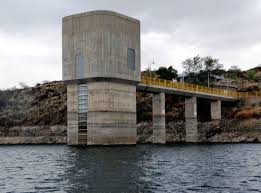
Trophy ban spells trouble for conservancies
Several conservancies across the country are in the process of preparing written submissions to be sent to EU ambassadors and Members of the European Parlimanet, in response to the European Parliament’s plans to vote to ban trophy hunting products entering the European Union.
According to Siphiwe Lutibezi, Communications Assistant of WWF and NACSO, currently conservancies from Kunene, the Kyaramacan Association and the Zambezi Region have handed in their letters, while other letters from more conservancies are still to come.
In one of the letters, the Governor of the Zambezi Region, Hon. Lawrence Sampofu said that 16 conservancies in the Zambezi Region representing 30,632 adults and covering 3,896 square kilometres would lose their most important source of income, if a ban on hunting imports is enacted in Europe.
Sampofu said that in the Zambezi Region alone the revenue generated from trophy hunting in 2015 was approximately N$17.5 million.
“This income is used by the conservancies to pay the salaries of community wildlife guards, and to pay for the costs of managing wildlife, as well as providing household level benefits to very poor rural families,” he added.
Furthermore Sampofu said, “If the EU was truly committed to conservation, then we would urge you to further investigate the evidence that demonstrates how hunting has played a very critical role in securing conservation, rather than threatening it.”
Sharing the same view, the Kyaramacan Association said that the proposed import ban would increase their poverty and reduce their livelihood.
“There would be more conflict between people and wild animals, and there would be more poaching.
“We will have to plough the land, and there will be no more space for wildlife,” the association said.
The Kunene Regional Conservancy Association also pointed out in writing how the ban would take a toll on the community.
“We are writing to you to explain why hunting is important to us and to conservation, and what will happen if it stops. Since our communal conservancies were formed, we have earned an income from trophy hunting and tourism. Some of our lands are very dry and remote. They do not attract tourists, and our only income for community development is from hunting,” they added.
Meanwhile, Sampofu said over the past two decades. the Zambezi Region, in partnership with the Ministry of Environment and Tourism, have worked hard to secure a future for wild animals in the region.
“The results speak for themselves, since conservancies were established starting in the late 1990s, we have seen dramatic increases in the populations of wildlife in our region, including key species like lions and elephants,” he said.
NACSO, the Namibian Association of CBNRM Support Organizations which fully supports the recent decisions of the Government in respect of conservation hunting and trophies derived from it said, “A ban on the importation of trophies to EU countries would result in a radical decline of hunters visiting Namibia, with a comparable decline in income to conservancies and their members, which in turn is likely to lead to an increase in wildlife crime.”












































